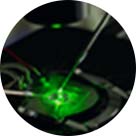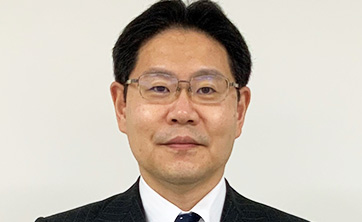Development of mathematical and applied statistics and their fusion
Background and Purpose of the Research Department
“Statistical science” is a field of study that uses the concept of probability to provide optimality theory and statistical methods to estimate the characteristics of the population behind the data obtained. In the recent years, “data science”, which is associated with big data, as well as artificial intelligence (AI), has attracted significant attention. Furthermore, the core of these theories is “statistical science (statistical theory)”, which has gained considerable prominence.
Accordingly, our university must build a research system that will lead not only Japan but also the rest of the world in the domain of AI and data science research. However, research in AI and data science is significantly extensive. Tokyo University of Science has been planning to conduct research in this field, intending to make the world proud. The university has many faculty members who specialize in “statistics”, and these members are present across all its campuses. In particular, it is no exaggeration to say that our university is the only one in Japan with a huge number of researchers that specialize in mathematical statistics, which handles statistical inference logic mathematically. Tokyo University of Science also has the distinction of being strong in medical statistics, as it used to host a medical statistics program for the working members of society. Therefore, we aim to create a research stronghold where the researchers in these fields can come together and actively interact with members from across all campuses and departments to conduct research “unique to Tokyo University of Science”. Furthermore, establishing this department will bring together researchers with specialties in different research topics but with a shared interest in a common theory. Our goal is to increase the level of research on essential theories and methods, and to create new theories and introduce new fields in the era of data science.
Research Group
This research department is roughly divided into two groups that conducts research in the following fields.
1. Mathematical Statistics Basis Group
(Leader: Hiroki Hashiguchi (Department of Applied Mathematics, Faculty of Science Division I))
The “multivariate analysis group” comprises faculty members from Kagurazaka, Katsushika, and Noda Campuses, as well as visiting professors and visiting associate professors. Focusing on the existing research themes of each faculty member, “multidimensional missing data analysis”, “highdimensional
data analysis”, “random matrix theory”, and “dimension reduction method”, we will conduct research with a view to developing the Applied Statistics Research Group. The “statistical model group” comprises faculty members from Kagurazaka and Noda Campuses and conducts research on topics such as “statistical modeling and model selection”, “nonparametric methods”, and “contingency table analysis”. The method, handled by the Mathematical Statistics Basis Group, has a clear theoretical background and acts as a white box. However, the method of solving a“ realworld problem” has a black-box aspect, such as in heuristics and deep learning. In constructing the theory of AI and data science, how to clarify the
black-box-like solution of the latter using the methodologies of the former, as well as other methodologies, will be asked.
2. Applied Statistics Research Group
(Leader: Takashi Sozu (Department of Information and Computer Technology, Faculty of Engineering))
In the field of “medical statistics (biostatistics)”, the faculty members of Katsushika Campus will conduct research activities related to the methodology of research design and data analysis, focusing on medical
research. Research on the development of educational methods and systems via quantitative analysis in “educational engineering” will be conducted mainly by the faculty members from Kagurazaka Campus. Additionally, in recent years, the field of “sports statistics, marketing, and other fields”, research is being actively conducted mainly by visiting professors and visiting associate professors Moreover, we plan to conduct joint research involving student exchange programs.
Regarding the “statistical machine learning/mathematical optimization field”, research on “natural language processing that integrates statistical/ machine learning and symbolic modeling”,“ large-scale nonlinear optimization problems related to big-data analysis and machine learning”, “statistical methods for computer-based data mining and pattern recognition”, and “marketing science and business data science” will be conducted mainly by the faculty members from Kagurazaka Campus.
Moreover, regarding one of the objectives of this research department, “collaboration with external institutions, such as companies, through a Center for Data Science”, a“ data analysis team”, which comprises research coordinators appropriate for each research content, will be formed, and joint research will be conducted.
Research Organization











